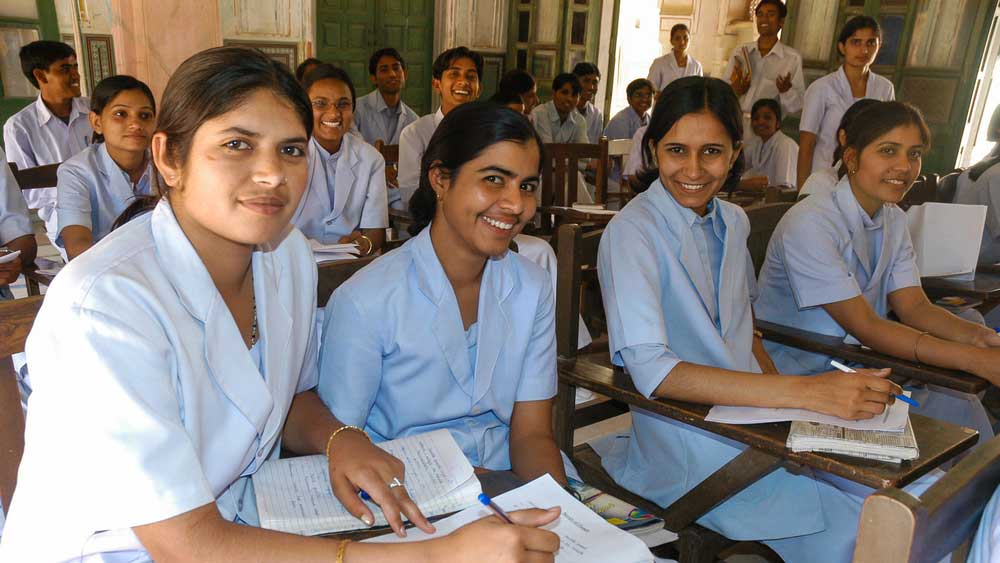The youth of Bengal have a great preference to be teachers or policemen rather than male nurses. In comparison with other professions, male nurses also serve society with great honour and skill. They have the opportunity to join the medical profession and serve the common people.
It is in fact a matter of great pride.
The entire nursing profession has emerged as care providers. The employment opportunity compared to other professions is really huge, but the Bengali youth has decided to ignore it. Compared to teachers, seldom are agitations seen in this profession. Initially, no men came forward.
Traditionally, these were considered as female jobs as perceived by society. It was considered as a step down in status which deterred men seeking nursing as a career. However, the male nurses were recruited in 1938 and reached the position of head nurse in 1950 with difficulty.
Does male nursing carry a stigmata even today, a question that the Bengal unemployed youth need to answer.
Present situation
The female workforce far outnumbers the male counterparts not only in Bengal but all over India. In Kerala, however, 20 per cent of all nursing seats have been booked for males by a government order (Rt3635/2003/H&FWD). For the 3-year coveted GNM (general nursing and midwifery) course, the government has allocated 2,692 female seats yearly and 125 male seats, probably because of the demand. Some more male seats will probably be added.
If all seats are included, both private and government, there are about 10,000 GNM seats and over 4,250 BSc (nursing) seats every year.
In one of the many corporate hospitals along the Bypass, about 447 female nurses were found, of which only 200 had graduated from Bengal. The number of male nurses was 78, of which only 10 had graduated from Bengal.
Unfortunately, there are only two male nursing colleges (both private) and 59 female nursing colleges (38 private). The disparity continues in Bengal, as in the rest of India.
History
India has been the pioneer country in developing a formal nursing curriculum. In 600 BC, the role of nurses was mentioned in the book Sushruta Samhita. Florence Nightingale (May 12, 1820 to August 13, 1910), considered the founder of modern nursing, wrote the book Notes on Nursing during the War of Crimea. She has been referred to as the “Lady with the Lamp”.
There were many others as well. Camillus de Lellis, a Roman Catholic priest from Italy and the founder of the Camillian, a religious order for the care of the sick, made a major contribution around 1600. There was also Prof Luthur Parmalee Christman (February 26, 1915 to June 7, 2011), American nurse at Michigan, who made an important contribution.
Gender issues
Male nursing over the years has repeatedly stumbled on the gender issue, although nursing was declared to be a gender-neutral profession in the late 20th century. The number rose to 2,454 males in the academic year 2010-11 against 5,270 females in the Rajiv Gandhi University of Health Sciences, Karnataka.
The first batch of male nursing students training was permitted from 1938-39 in Madras Presidency.
However, is gender at all an issue! Males can perform many duties where females may need help. There is no problem for males to perform independently in male wards. In the female and maternity wards, they may be given appropriate duties under the leadership of a female in charge.
Unfortunately, there are no co-educational nursing colleges in Bengal. Males today can think of a decent career in nursing. Male nursing can in fact be the next destination for the unemployed Bengal youth.
Questions
Although feasible, there are many questions regarding male nursing. An equal employment opportunity is always a debatable issue, so is the stigmata.
Opportunity of a stable career with adequate growth opportunity should be assured at the outset.
Co-educational colleges have been the norm in most disciplines, why not in the nursing sector?
Though teaching and policing offer great opportunities, male nursing gives an honour and purpose to life. It is probably time the number of male nursing colleges increased substantially, and the unemployed Bengal youth takes nursing as an employment opportunity and challenge.
Gautam Mukhopadhyay is the secretary of the Bengal Oncology Foundation and clinical director of the department of surgical oncology, Peerless Hospital
